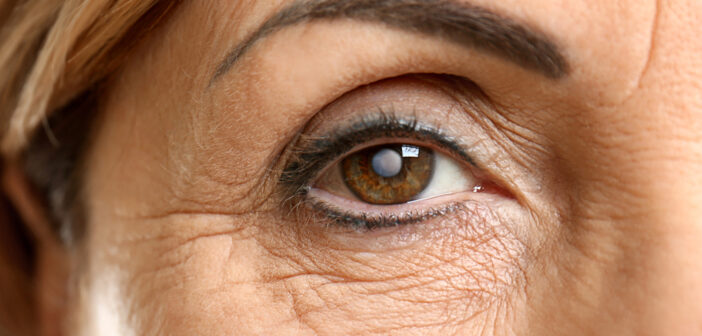How long do I have to wait to have cataract surgery? Will my cataracts come back if I have surgery too soon? I have glaucoma – is it safe to have cataract surgery? These are just a few questions people ask about cataracts. It’s no wonder this topic is so widely discussed, because cataracts affect more than 24 million Americans age 40 and older.
Cataract surgery is one of the most common elective surgeries in the U.S. That’s right, it’s “elective.” This means patients choose to have cataract surgery, which answers one of the questions patients really want to know. When will my eye doctor tell me it’s time for cataract surgery?
John A. Waters, MD, Ophthalmologist at Complete Eye Care, says that when patients ask him this question, he tells them “You will tell me when it’s time for cataract surgery.” If a patient has cataracts, Dr. Waters asks if they are bothered by things like glare during night driving or if they’re having trouble seeing street signs or reading words on the TV. If the answer is “yes,” and glasses won’t improve the vision, then cataracts are likely the cause of the issues.
As for when to have cataract surgery, age is no longer the determining factor. A generation ago, most people having cataract surgery were in their 80s, but there is no reason to wait. Now, people in their 50s and 60s are choosing surgery in order to improve their quality of life and maintain independence.
Having surgery at a younger age makes people question whether their cataracts might “come back,” and the answer is “no.” To understand this, it’s helpful to know what a cataract is. A cataract forms when the natural lens in the eye ages, which causes it to harden and become cloudy. Cataracts make colors appear dull or yellowish and vision is blurry, like looking through a dirty window. During surgery, the cataract is removed and replaced with a clear lens implant that lasts for a lifetime.
Today, a wide variety of lens implants are available. The standard implant corrects only distance vision. Toric lens implants correct distance vision plus astigmatism (imperfection in the eye’s curvature), and other lenses correct distance, intermediate and near vision, helping people avoid glasses. Dr. Waters says he takes time to carefully assess which lens implant is best for each patient. “We talk about their hobbies and activities and together, we decide which lens implant will help them have the most active and enjoyable lifestyle.”
Some people not only have cataracts but also glaucoma, and they wonder how cataract surgery impacts their glaucoma. There are several great options to treat glaucoma during cataract surgery, and Dr. Waters offers his patients these options. “Having glaucoma surgery during cataract surgery can make life convenient for patients who wish to avoid drops to treat their glaucoma,” he says.
In the end, cataract surgery doesn’t have to be a scary decision. In fact, Dr. Waters tells patients it’s no more difficult than getting their teeth cleaned at the dentist!








